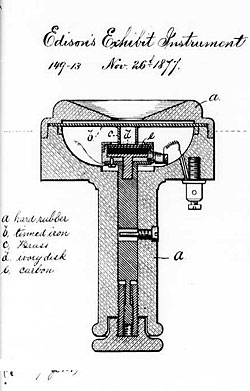History does appreciate the way that inventors, innovators and entrepreneurs change the world, making things better for us all. It’s a kind of visceral feeling, often anecdotal. One of those great paradigm changers was Thomas Edison, who brought light to a lot more than just the electrical industry. Even though Edison died decades ago, his life’s work is still a significant portion of the world’s economy – About $12 trillion of the current world economy of $90 trillion. In fact, experts believe his accomplishments have resulted in one in four of all the jobs on the planet today!
Edison is often called a “disruptor” for the way that he flipped industries on their heads with his inventions and created new ways of doing things. He is among other like Martin Luther King Jr. and Elon Musk, who have been put into the same category for how they challenged the old ways. Here are 5 ways he “disrupted” and changed the world as we know it today:
1. Thomas Edison increased the telegraph industry’s productivity times 4, with his improvements that increased the number of messages able to be sent down a wire at once.
2. During his quest to inaugurate concrete homes into American life, Edison increased the output of concrete manufacturing plants 4 times. He increased kiln length from 50 to a gigantic 200 feet with his giant ore crushing rollers in order to produce the massive amount of cement for homes and stadiums. While concrete buildings never became an industry itself, experts claim that Thomas Edison had the biggest influence in today’s cement production technology.
3. The Research & Development (R&D) industry was born when Thomas Edison opened the first industrial R&D lab based on team-based work in 1887. By 1931, every major company in the world had an R&D lab like Edison’s. This year, the USA will spend about $650 billion in R&D in all sectors, which is almost the size of the nation’s defense budget.
4. By improving on Alexander Graham Bell’s original speaking microphone in the phone with the carbon button transmitter, Thomas Edison made the telephone more of a widespread technology in every house throughout the world. Edison’s microphones were in just about every phone in the world from the early 1880s to the mid 1980, eventually becoming a mainstay of the broadcasting and sound amplification industries.
5. By discovering “thermionic emission” while experimenting with the carbon light bulb filament, Thomas Edison created the basis of the electronic industry. While he didn’t do much with this discovery in his time, the diode and triode vacuum tubes that came from it led to radio and television, and ultimately transistors and integrated circuits
.








Nikola tesla better
did ididkf ghrg dfnrg sg sngje June hndhf gbfng fnghfng tgbtng gndjtnf gns gnsgbn rg snbrjgb shrgnb sjbrg
ABCDEFGHIJKLMNOPQRSTUVWXYZ now you know your abc so come sing it with me✡